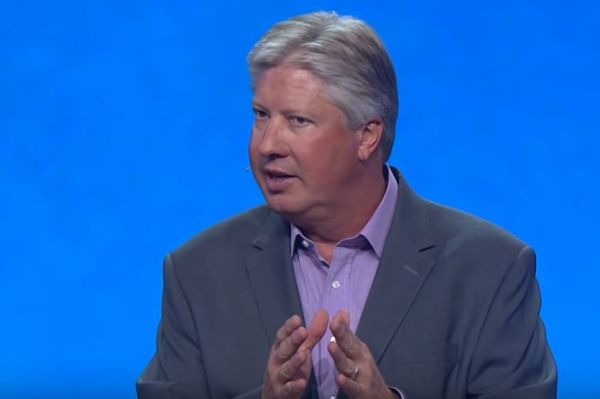Here I am. Send me

Many Christians today are being called by God to leadership. Some may think the timing is wrong or feel unqualified for the job. But during a time in world history that parallels our world today, the great prophet Isaiah said, “Here am I, send me.” There’s a reason for his answer.
Isaiah grew up in the royal court of King Uzziah. When Isaiah was about 25 years old, Uzziah disobeyed God and died of leprosy, which created a leadership crisis. The nation was already in moral decay. People were resisting God. Plus, Isaiah had a personal struggle. Yet, in the midst of this, Isaiah wrote:
“I saw the Lord high and exalted, seated on a throne, and the train of his robe filled the temple…. Then I heard the voice of the Lord saying, ‘Whom shall I send? And who will go for us?’ And I said, Here am I, send me” (Isaiah 6:1, 8 KJV).
Today, we see crises in leadership on every level of society. Church leaders have failed morally, relationally and financially. Secular leaders are failing from the U.S. to Europe and from Capitol Hill to Silicon Valley.
Yet, although earthly leaders fail, God never fails. Many Christians called to leadership during a leadership crisis need to realize that just because others fail, it doesn’t mean they will fail.
Isaiah answered God’s call during this leadership crisis, and also while also facing the nation’s moral collapse. God’s law was neglected. Injustice was rampant. Oppression was normalized. Prayer was peripheral. Idolatry and immorality were prevalent.
Our world is in a similar moral decline. Yet God is calling us to be his voice in the middle of ungodliness and to be a light in the middle of darkness.
The Message version translates a warning the Apostle Paul gave his protégé, Timothy, about difficult times ahead.
“As the end approaches, people are going to be self-absorbed, money-hungry, self-promoting, stuck-up, profane, contemptuous of parents, crude, coarse, dog-eat-dog, unbending, slanderers, impulsively wild, savage, cynical, treacherous, ruthless, bloated windbags, addicted to lust and allergic to God” (2 Timothy 3:1-5 MSG).
Jesus taught about the last days.
“There will be an environment of deception. There will be wars and rumors of war. Nation will rise against nation, and kingdom will rise against kingdom. There will be famine. There will be pestilence. There will be natural disasters. All of these are like birth pains in the earth. Persecution will happen to the Church. People will betray those they once loved. There will be spiritual coldness, and an environment where only the committed will endure” (Matthew 24:6-9, my paraphrase).
Then Jesus said that even in this kind of environment, “This Gospel of the kingdom will be preached in the whole world as a testimony to all nations, and then the end will come” (Matthew 4:24 NKJV).
Even in the middle of a resistant world, Jesus has promised us that the Gospel of the kingdom will be preached in every nation.
Isaiah was facing a leadership crisis, moral deterioration, and significant resistance, yet God told Isaiah to preach to the people even though they were not going to listen to him (Isaiah 6:9-10).
Expect resistance. It’s not easy to be God’s instrument. All the easy jobs in God’s kingdom are gone.
Consider the long legacy of Christians who have endured resistance to answer God’s call. David Brainerd, an orphan, born in 1718, served Native American missions for three years before he left due to tuberculosis. He moved in with Jonathan Edwards, a leader of the First Great Awakening, and died at the age of 29.
Edwards’ biography about Brainerd’s persistence during great resistance inspired a generation of missionaries. One is William Carey, the “father of modern missions.” Influenced by Brainerd’s testimony, Carey, the shoe cobbler, took his family to India. He met great resistance. Carey’s ministry partner quit. His son died. His wife lost her mind. It took Carey 41 years to make just 700 converts.
But in India, Carey translated the Bible into India’s major languages and portions of it into more than 100 dialects. His work paved the way for future missions, and tens of millions of Indian believers are the result.
Isaiah faced a leadership crisis, moral decay, and resistance, and he also faced a personal struggle. When he saw the glory of God, he said, “I’m a man of unclean lips” (Isaiah 6:5 KJV).
What he meant is unclear. Perhaps he told dirty jokes? Or cursed? Or couldn’t speak straight? What is clear is that Isaiah had a personal struggle and so do all “called” people from the time of the Scriptures to this present day. God calls flawed people.
Paul wrote,
“Think of what you were when you were called. Not many of you were wise by human standards. Not many were influential. Not many were of noble birth. But God chose the foolish things of the world to shame the wise. God chose the weak things of the world to shame the strong” (1 Corinthians 1:26-27).
Something happened to Isaiah when he admitted his personal struggle that changed everything. A seraph placed a lump of burning coal from the altar of God on Isaiah’s mouth, signifying that God’s fire was purifying him and getting inside him.
From that moment on, Isaiah was “on fire.” He didn’t care if the world was falling apart. He’d been touched by heaven, and he had to answer God’s call.
Isaiah was looking at the chaos in his world and at his own personal struggles and basically said, “Lord, Here am I, send me anyway.”
God says to you today, “I know the chaos in the world, and I know your flaws and struggles, but I’m calling you anyway.”
If you let him, God will touch your life with fire from heaven. It’s up to you to say, “It may not seem like the right time, and I may not feel like the right person, but here I am. Send me anyway.”
Dr. William M. Wilson is the president of Oral Roberts University (ORU) in Tulsa, Oklahoma. Dr. Wilson is instrumental in developing Spirit-empowered leaders through whole person education to impact the world. He is known as a global influencer and a dynamic speaker with four decades of executive leadership experience. Wilson’s weekly television program, “World Impact with Dr. Billy Wilson” has been inspiring viewers in over 150 nations and multiple languages since 1998.
As Global Co-chair of Empowered21, which attracts Spirit-empowered principals from ministry, academics, and next-generation voices. Wilson is the Chair of the historic Pentecostal World Fellowship and holds leadership positions with the National Association of Evangelicals, Mission America Coalition, International Christian Embassy Jerusalem, American Association of Presidents of Independent Colleges and Universities, and the City of Tulsa Chamber of Commerce.





















